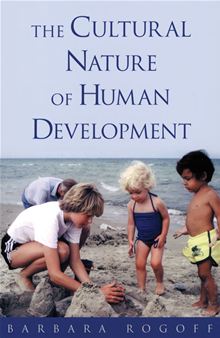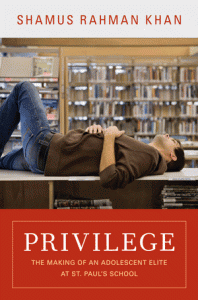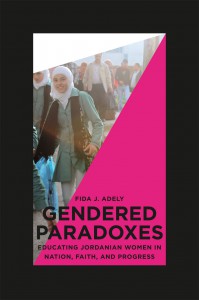50:920:345:01
Tuesdays & Thursdays, 11:10-12:30
Business School building, Room 107
Syllabus website: https://caticoe.rutgers.edu/courses/sociology-of-education/
Assignments: https://caticoe.rutgers.edu/courses/sociology-of-education/sociology-of-education-assignments/
Professor Cati Coe
405-407 Cooper Street, Room 203
Office hours: Tuesdays, 3:30-4:30 and Thursdays, 10-11am, or by appointment
phone: (856) 225-6455
email: ccoe@camden.rutgers.edu
Course Description
Although most people in the US think of schools when they hear the word “education,” education is much broader, encompassing all the ways that young people are socialized into their communities, including through peers, family members, and the media. Education, in its broadest definition, is the way that one generation’s social structure and way of being in the world—including all its knowledge and behaviors—are transmitted to the next generation, but not without change and conflict. Schooling is a particular institutional form for educating young people. In this course, we will examine the social aspects of education and schooling: the interaction between home, society, and educational institutions; the ways that social inequalities are reproduced through schools; and the ways that identities are formed through education. Schools both exist within a larger society and are their own social world, with the formation of peer groups, particular institutional arrangements, and ways of transmitting relationships and knowledge. We will pay particular attention to the way that small interactions within educational settings have much larger implications within society.
Expectations
By the end of this course, you will be expected to be able to:
- assess the relationship between schooling and social inequality, including some of the ways that schools contribute to social inequality;
- understand that learning, thinking, and growing are social and cultural processes which occur in sociocultural contexts and that schools are a particular kind of social context;
- describe the process by which schools came to dominate education, and the effects of institutionalizing educational efforts;
- understand the changing relation between education and employment;
- explain how schools affect social identities and relationships;
- write an argument-driven paper based on original data; and
- summarize and critique the arguments presented in the readings in this course.
Required Texts
Three books are at the campus bookstore and on reserve at the circulation desk at Robeson library:
 The Cultural Nature of Human Development by Barbara Rogoff |
Gendered Paradoxes |

Privilege |
The remainder of the readings can be found online via the library’s reserve readings or are links off this webpage (in brown or green, rather than black). The readings are due in the class in which they will be discussed, following the course schedule below.
Course Schedule
January 16: What is Education and Society?
Discussion of the relationship of “education” and “society.” Course overview and requirements.
Class resources: Discuss!
To do by the end of January 17th at the latest:
- Get a NetID if you don’t already so that you can access library resources online and from home: https://netid.rutgers.edu/index.htm
- Update your email address if necessary at http://search.rutgers.edu/changes.html. This is important for receiving course emails. Be sure to keep your registered email address current in order to receive important course information.
- Get a Student Photo ID (available from the Impact Booth in the Campus Center) if you don’t already have one.
- Get the books through the bookstore or other means. The books are available through the reserve desk at Robeson Library. You will need The Cultural Nature of Human Development immediately.
- Print out all the readings on reserve so that you have them for the whole semester.
- Review Rutgers’s policy on academic integrity.
Part I: How are Children Socialized in their Communities and How is this Different from Socialization in Schools?
January 18
Reading: Rogoff, Barbara. (2003). The Cultural Nature of Human Development. Oxford: Oxford University Press. Chapter 1, pp. 3-36.
January 23
Reading: Rogoff, The Cultural Nature of Human Development, Chapters 2 & 3, pp. 37-101
First paper assignment given
January 25
Reading: Rogoff, The Cultural Nature of Human Development, Chapter 4, pp. 102-149
Video in class: “Bathing Babies in Three Cultures” by Margaret Mead and Gregory Bateson (1952)
January 30
Reading: Rogoff, The Cultural Nature of Human Development, Chapters 5 & 6, pp. 150-235
February 1
Reading: Rogoff, The Cultural Nature of Human Development, Chapter 7, pp. 236-281
February 6
Reading: Rose, Mike (2001). The Working Life of a Waitress. Mind, Culture, and Activity, 8, 3-27 [on reserve]
February 8
Reading: McDermott, Ray and Varenne, Herve (1999). Adam, Adam, Adam, and Adam: The Cultural Construction of a Learning Disability. In H. Varenne and R. McDermott (Eds). Successful Failure: The School America Builds (pp. 25-44). Boulder: Westview Press. [on reserve]
February 13
Reading: Rogoff, The Cultural Nature of Human Development, Chapters 8 & 9, pp. 282-369.
Part II: The Expansion of Schooling. And its Decline?
February 15
Reading: Perkinson, Henry J. (1995). The Imperfect Panacea: American Faith in Education. Boston: McGraw-Hill. Chapter 2: “The Evolution of the American Public School,” pp. 10-32. [on reserve]
February 20
Reading: Adely, Fida J. (2012). Gendered Paradoxes: Educating Jordanian Women in Nation, Faith, and Progress. Chicago: University of Chicago Press. Introduction and Chapter 1, pp. 1-30.
Due: First paper
February 22
Reading: Adely, Gendered Paradoxes, Chapter 2, pp. 31-56
February 27
Reading: Adely, Gendered Paradoxes, Chapters 3 and 4, pp. 57-111
March 1
Reading: Adely, Gendered Paradoxes, Chapter 5, pp. 112-136
Second paper assignment given
March 6
Reading: Adely, Gendered Paradoxes, Chapter 6 and Conclusion, pp. 137-175
March 8
Reading: Sassen, Saskia (2014). Introduction: The Savage Sorting. Expulsions: Brutality and Complexity in the Global Economy (pp. 1-11). Cambridge: Harvard University Press.
Spring Break
Part III: Social Inequality and Educational Opportunity in America?
March 20 Schools as a Sorting Mechanism
Reading: Brint, Steven (1998). Schools and Social Selection: Opportunity. Schools and Societies (p. 171-203). Thousand Oaks: Pine Forge Press. [on reserve]
March 22 The Role of College in Reproducing Social Inequality
Reading: Leonhardt, David (2005). The College Dropout Boom. In Correspondents of The New York Times (Ed.), Class Matters (pp. 87-104). New York: Henry Holt & Company. [on reserve]
Due: Second paper
Third paper assignment given
March 27 School Segregation by Race and Class
Reading: Orfield, Gary, E. Frankenberg, J. Ee, and J. Kuscera (2014). Brown at 60: Great Progress, a Long Retreat, and an Uncertain Future. The Civil Rights Project, UCLA. (online link)
March 29 School Funding and Social Inequality
Readings: 1) The Education Trust (2015). Funding Gaps 2015. Washington DC: The Education Trust. (online link)
2) Kozol, Jonathan (2005). Hitting Them Hardest When They’re Small. The Shame of the Nation: The Restoration of Apartheid Schooling in America (pp. 39-49). New York: Crown Publishers. [on reserve]
Lecture: School Funding
April 3 Sorting by Instruction?
Reading: Wilcox, Kathleen (1982). Differential Socialization in the Classrooms: Implications for Equal Opportunity. In G. Spindler (Ed.), Doing the Ethnography of Schooling (pp. 269-305). New York: Holt, Reinhart, and Winston. [on reserve]
April 5 Sorting by Instruction?
Readings: 1) Gamoran, Adam (1992). Is Ability Grouping Equitable? Educational Leadership 50:2, 11-17. [on reserve]
2) O’Neil, John (1992). On Tracking and Individual Differences: A Conversation with Jeannie Oakes. Educational Leadership 50:2, 18-22. [on reserve]
3) Lewis, Catherine C. (1996). Fostering Social and Intellectual Development: The Roots of Japan’s Educational Success. In T. P. Rohlen and G. K. LeTendre (Ed.), Teaching and Learning in Japan (pp. 79-97). Cambridge: Cambridge University Press. [on reserve]
April 5 Social Class and Cultural Capital
Reading: Lareau, Annette (1989). Home Advantage. Lanham: Rowman and Littlefield. Chapters 6 and 7, pp. 97-148
April 10 What do Students Learn in Elite Schools?
Reading: Khan, Shamus Rahman (2011). Privilege: The Making of an Adolescent Elite at St. Paul’s School. Princeton: Princeton University Press. Introduction and Chapter 1, pp. 1-40
April 12
Reading: Khan, Privilege, Chapter 2, pp. 41-76
April 17
Reading: Khan, Privilege, Chapter 3, pp. pp. 77-113
April 19
Reading: Khan, Privilege, Chapter 4, pp. 114-150
April 24
Reading: Khan, Privilege, Chapter 5 and Conclusion, pp. 151-199
April 26 Bringing it all together
Conclusions
Due: Third paper
Final Exam
